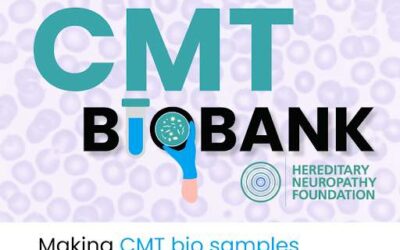CNTNap1 is a recessive mutation in CNTNAP1 that leads to a loss of this gene and its protein product CASPR. The loss leads to disruption of the myelinating cells from the signal transmitting nerve cell axons. This has profound negative effects on the development and maintenance of many nerve fibers in the central and peripheral nervous system. The effect on the peripheral nerves is a profound demyelination that presents with severe CMT syndromes.
HNF Research Initiatives
FDA Repurpose Drugs
In September 2021, HNF partnered with Rarebase, a public benefit company that leverages cutting-edge technology (Function, a tech-enabled drug discovery platform) and biology using FDA-approved drugs to deliver accelerated, off-label treatments for CNTNAP1. HNF has completed Phase I of the project.
Natural History Studies
The Global Registry for Inherited Neuropathies (GRIN)
The Global Registry for Inherited Neuropathies (GRIN) was developed in 2013 to stratify large groups of patients for all types of CMT to gain a deeper understanding of CMT. This important data also allows HNF to better identify the burden, diagnostic journey, and prevalence of CMT that will aid TRIAD research partners.
Patient data = Improved Research & Clinical Trial Design.
If you don’t know your CMT type, you can find out from the HNF through The CMT Genie Program.
www.cmtgenie.org2025 CMT Roadshow Coming to a City Near You?
Do you want to make a difference in CMT research? HNF is looking for patients with a confirmed CMT diagnosis to participate in the CMT Biobank


